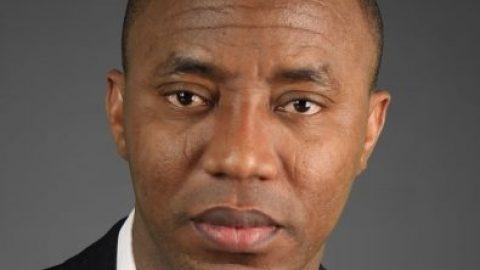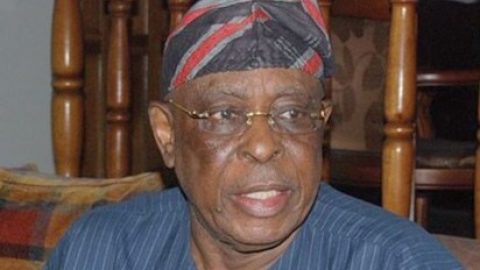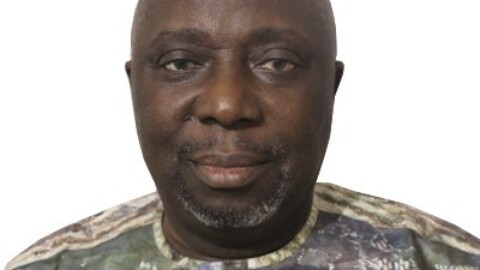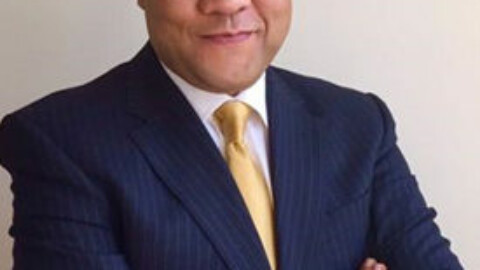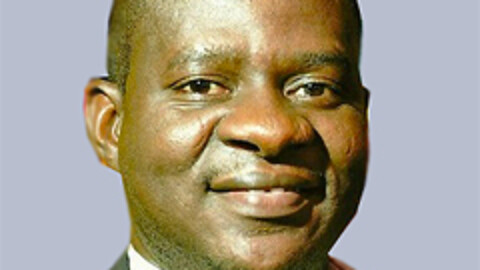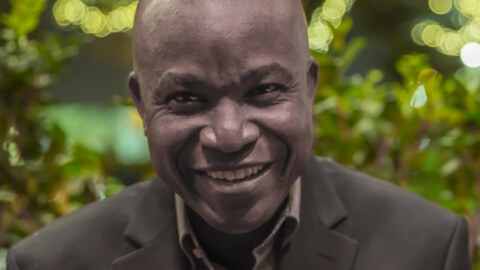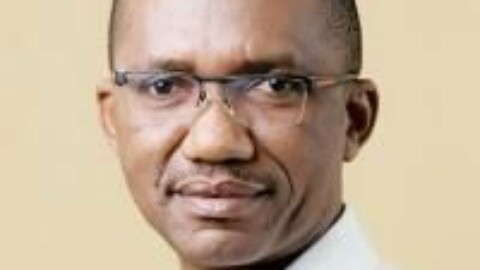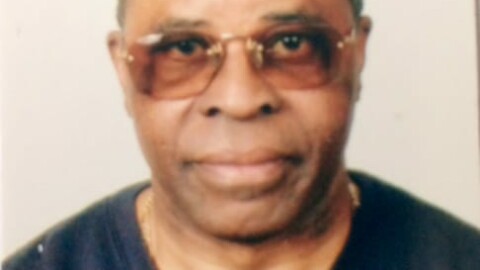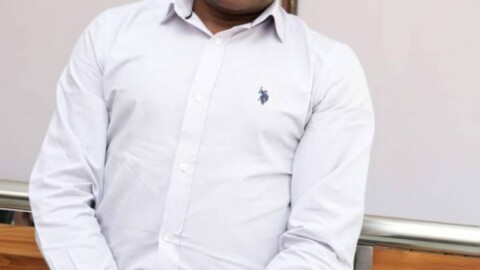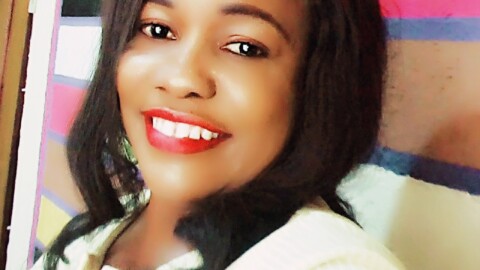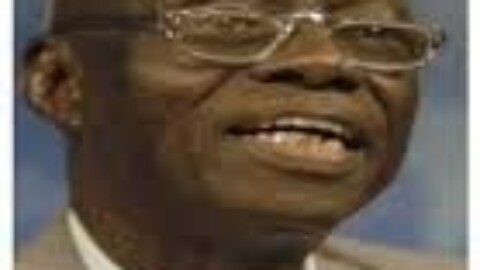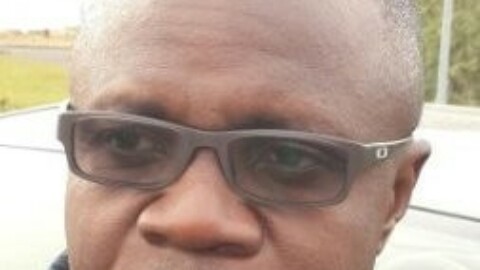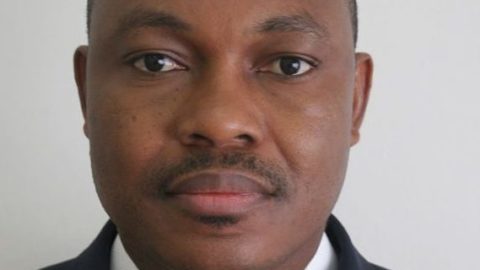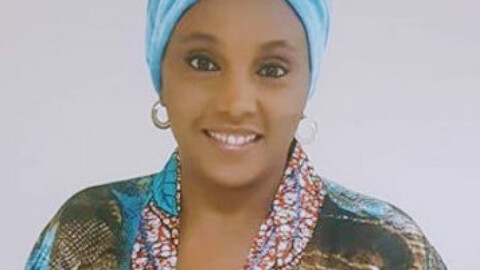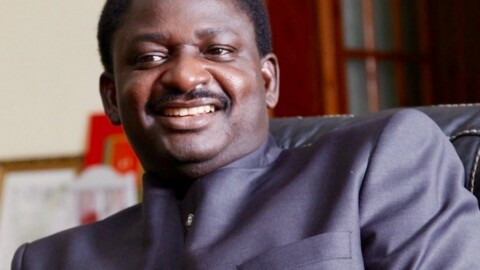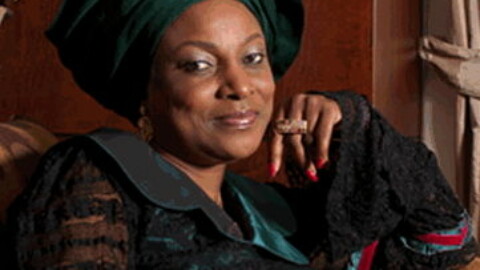It happened shortly after I completed my academic programme in Library and Information Science at the University of Ibadan. Immediately after my studies, I returned to work at the university library—from where I had taken a study leave. Then one day, something unforeseen unfolded; its outcome eternally altered my career trajectory.
Professor Donald Ekong came to our house in Ibadan, to have lunch with my uncle, Professor Eno Jumbo Udo, who taught agronomy at the University of Ibadan. Without imagining what awaited me, I walked into the living room and greeted Professor Ekong.
There was nothing strange about that. However, before I could walk away, he asked me, “Have you heard that I have
been appointed to head the University of Nigeria Nsukka Campus in Calabar?” That was how the present University of Calabar was called at that time. I responded that I was not aware of it, and congratulated him. Then he said something more profound: “Nyaknno, go and look at your calendar. There is what we call the library calendar. It contains names of staff and their positions from top to bottom. Your number is 106 on that list.
This means it will take the next 100 years before you can get to the top.” That revelation took me by surprise. Before then, I never thought of that. In the night, while in bed, I reflected on that insight by Professor Ekong, and started wondering about what to do next. There was no doubt that the man had made an important point.
He had even graciously gone ahead to propose a job offer for me at the university library in Calabar. His point was that if I could join the university staff at that time, even as an assistant librarian, I would grow along as the school matured. So, I asked myself, what am I doing here? Before daybreak, I had decided on a line of action. Early in the morning, I met my uncle and reminded him of what Professor Ekong said. I sensed a hint of relief in him, at least for one reason.
Interestingly, before I went to library school, I had a rare chance of meeting with General Adeyinka Adebayo—a meeting which ignited my interest in joining the military. It happened that Professor Jacob Festus Ade-Ajayi was at that time the Vice Chancellor of the University of Lagos. He lived in a beautiful compound in Ibadan, opposite the
university gate. Almost every first day of January, he would host a party that had in attendance important personalities across Nigeria.
During one of such parties, my daring cousin, Sonny Ayara, took me there. That was where and how I met General Adebayo. I noticed that the security around him was a bit relaxed. I sneaked to where he sat and said to him, “Sir, I like this your uniform. I understand that you are the Commandant at the Nigerian Defence Academy; I would like
to come to that school.” The man looked at me, smiled and said, “No problem. I will arrange it.” After the party, he told me that I would hear from him soon.
A few days later, he sent one of his drivers to deliver an application form for my admission into the NDA. I was advised to fill and return the form through the driver. I quickly filled the form, only to observe that there was a section to be signed by the parents of the applicant. I took it to my uncle to sign since my parents were in the village.
My uncle took a mean look at the form and asked, “Have you seen the last sentence? They are saying that even if anything happens to you, nobody would be held accountable. That means, if in the process of training, you die, you are not covered by any insurance.
There’s a statement like that in the form. So, take it to the village, meet your father, and let him sign it.” As far as my uncle was concerned, he brought me from home to study medicine. Since I refused to undertake that course and wanted to join the military, he refused to sign the form.
It therefore came to him as a big relief when, after my unique encounter with Professor Ekong, I announced to him that I was going to Calabar to take up the job offer. That made more sense to him. He ordered me to be on my way to Calabar immediately.
That journey was the beginning of a life of adventure that has refused to terminate. I quickly wrote a letter asking for another leave of absence from the university library. It was approved. So, I left for Calabar to meet Professor Ekong.
I travelled by road. It was fun. I reached Calabar on a Sunday evening and went straight to my cousin’s apartment. He was happy to see me. His house was on Hart Street. On Monday morning, I took a taxi to the University of Calabar to see Professor Ekong. Unfortunately, I was informed that he had travelled outside the country. That was
devastating.
Since I had a little knowledge of university administration, based on my sojourn at the University of Ibadan as a library assistant, I went straight to the Registrar’s office. At that time, the Acting Registrar was Mrs Ruby Essien-Udom, whose husband, Professor Essien-Udom, taught political science at the University of Ibadan. She was an AfricanAmerican.
We had before then met at UI. In fact, we were neighbours on a street called Amina Way. I used to go with my uncle to a party in Mrs Ekong’s house. She recognised me immediately. I told her that Professor Ekong wanted me to join the staff of the university library. She said she had no knowledge of such an arrangement.
What that suggested was that Professor Ekong did not give her any information about me, an indication that he did not discuss with her about the job offer. The implication was that I would have to wait for Professor Ekong to return from his trip. But it did not end there. Mrs Essien-Udom informed me that Professor Ekong had gone to Jamaica, and from there he would go to Canada before proceeding to the United States of America.
His itinerary was planned that way to reduce the possibility and the cost of returning to Nigeria before going to these other places. The purpose of the trip was to invite foreign lecturers to the school. Indirectly she was telling me, if you want to go back to Ibadan, fine; or you can stay and enjoy yourself in Calabar, but I’m not going to engage you because Prof did not leave any such instruction.
In front of me was an unplanned holiday. Calabar wasn’t a bad place for a holiday. As I took a taxi out of the university campus, I thought of where to go first. I used to love reading International Herald Tribune newspaper; and I suspected that they might have it in the Cross River State Library. So, I went straight to the library. It was another
walk into destiny. I didn’t know my steps were being divinely guided.
As I entered the State Library Board, I met an old classmate from the University of Ibadan. She was so excited to see me. Quickly, she wanted me to meet her boss, the State Librarian, Chief Ekei Essien Oku, one of Nigeria’s first chartered librarians and the first woman to be a Chief librarian in Nigeria. Immediately I met her, based on the
information my friend gave her, she said she was looking for someone like me in the library because they were short of professional staff. I was hired almost on the spot.
The library was under the Ministry of Information and Culture. A few weeks after I started work, I saw someone with a commanding look, walk into the library. It was a Monday afternoon. His face was remotely familiar, though I knew I had not met him in person before. I remembered quickly that I had read his column on Sunday, which was the previous day. This was Ray Ekpu, the editor of Sunday Chronicle, published by the then South Eastern State Newspaper Corporation. He was influential, highly talented and respected.
I found myself staring at him as he moved to a section of the library. He was obviously in search of a certain document to extract information from. There was this urge in me to get close to him. I walked straight to him, greeted, and asked if I could be of help. He readily agreed. I liked his voice as he responded. With my modest
experience at the University of Ibadan Library, I was able to get the document for him within a few seconds. He seemed quite delighted.
Shortly after, he called me back and asked for another document. I can’t recall what it was; it must have been either a book or magazine. But just before he left the library some hours later, he said something like: “Are you new here? I’ve not been seeing you until today.” I told him I had just been employed, and added: “You must be Ray Ekpu?” He said: Yes. Then asked again: “How come you know me?” I told him, “I read your column yesterday about Uganda’s Idi Amin.
It was beautifully crafted, but it left out some background information, which I could have provided for you.” I had this critical mind which I derived from my student days at the UI. I did literary criticism as one of my courses. I was in love with books, and it was difficult not to like literature.
So, anything I read, I did so with a critical mind.
Ekpu absorbed the information in silence. Then about 10 minutes later, I noticed that he was looking at me; apparently trying to size me up. It was like saying: ‘Who is this small boy.’ Maybe I was too audacious. My background prepared me for such situations.
I lived with a professor for more than five years, and I was interacting with other professors every day; either in the classroom or in the library. I had spent at least five active years in the university community as a student and staff member. I took part in campus politics, and every other activity that was going on there. I could name almost all
the professors at UI. We had a list of all of them in the library. I knew their children. We played together. I knew their girl friends. It was this boldness that informed my reaction to Ray Ekpu’s column.
Then he beckoned at me and I walked over to see him. He said: “Ehe, what’s that your name again?” I told him and added that I stayed in Ibadan with my uncle. He started chatting with me a bit more informally. What surprised him most was when I told him,m“Uncle, you are very popular. I know your girlfriend in Ibadan, Uyai.” He asked: “You
know Uyai?” I answered, “Yes, she says you are her boy friend and she is going to marry you.” He responded, “Oh ooo, that’s interesting.”
Then he changed the direction of our conversation. “Okay, why we are not having substance in most of our stories is because we don’t have a research centre; a news media research centre, or even a library or a
documentation centre where we can gather information to give background to our stories. That is the problem at the Chronicle.”
Then he asked me about myself. I told him I schooled at the UI and I worked there. He wanted to know what I was doing in Calabar. I told him that I came to see Professor Donald Ekong, because he had invited me to come and be part of University of Calabar Library. That instantly informed him that I was a librarian. When he heard that
he said: “Aaahhh, then can we have lunch together tomorrow so that we can discuss this thing in depth.” I agreed.
The following day, I went to meet him at Barracks Road, where the Nigerian Chronicle office is located. He took me out for lunch. We discussed. When we returned Ekpu said, “Give me a feasibility report on how to set up a news media research centre at the Chronicle.”
He went ahead to explain what he needed. That sounded both strange and interesting, because I didn’t study journalism librarianship. But I was interested in newspapers and magazines generally. Before that day, I had not written a feasibility report before.
While in Ibadan, I used to read Sam Amuka-Pemu in the Sunday Times and later The Punch. I found his writing quite interesting. I also used to read Gbolabo Ogunsanwo, Tunji Oseni, Peter Enahoro, among others. My uncle had heaps of newspapers that I read, line by line, page by page.
I told Ekpu that though I didn’t study that branch of
library science, it would be interesting to work on it. I told him I knew how to search and research, and that I would need a month to get that done. He agreed and provided all the required resources. I got an unofficial permission to travel to Ibadan. Later, I resigned from the Cross River State Library.
When I left Uncle Ray that day, I decided to travel to Aba where the Daily News newspaper was based. Then I went to Umuahia and Enugu. I also visited the Eastern Nigeria Broadcasting Corporation. When I finished with the libraries in the Eastern States, I moved straight to Lagos. I visited the Daily Times; Radio Nigeria; and Voice of Nigeria libraries. Then I left for Ibadan, visited the Sketc, Tribune, and the Western Nigeria Broadcasting Corporation. WNBC had the best library at that time.
I even visited Chief Obafemi Awolowo’s library. From Ibadan, I travelled to Kaduna, where I checked out Arewa House, New Nigerian Newspaper, Federal Radio Corporation of Nigeria, Kaduna library; and even Ahmadu Bello University Library. I went to a few other places—where I thought I could get useful information. The trip was funded by the Cross River State Newspaper Corporation. It was fun because I was learning a lot. I was reading and asking questions.
Then I returned to Calabar and wrote a report, which I submitted to Ekpu. It was neatly packaged. Ekpu was eager to have it. I watched him read it page by page with satisfaction. He was muttering: Yes, yes, yes, yes. What I did was to conduct a review of all the papers I visited.
My conclusion was that apart from the Western Nigerian Broadcasting Corporation and Daily Times, no other media organisation had anything we could call a library. Sketch also had something with the semblance of a library. Others were mere stores where they dumped unsold copies of the newspapers; and they call these stores libraries.
Ekpu, after reading the report, said, “I don’t know how we’re going to do this. But, even if you are going to work at the university when Prof comes back, can you try and put together a place, based on this report. At least put up a model, or something like a library for us?”
It was clear that he did not want me to leave. I also knew instantly that I could not just put up a model library and walk away, because it would not make any sense. Something told me that Ekpu had hijacked me. I was personally interested in working with him. So, I decided to stay. When Professor Ekong eventually returned, I was no longer interested in the university job. By that time, I was totally involved in trying to set up the Chronicle library. After about two or three months, I went to Lagos and visited the United States Information Service. I met with the director of the library there.
I expressed interest in what I saw in Editor and Publisher—the list of books they published for
journalists in America, which they said was widely circulated. I needed to know how I could lay hands on the books.
Without hesitation, I was told to compile a list. I did that without delay. What they did next was to send it to the United States of America.
When the books were delivered in Nigeria a few weeks later, they were sent to me in Calabar. They came in several cartons. At that time, no other newspaper library in Nigeria had the kind of resource material that the Nigerian Chronicle had. I also got information about journalism books from the Herald Tribune.
When I wrote directly to them, they started sending me information on their forth-coming books. It came in catalogues that you could select from. At that time, naira was stronger than the dollar. These cartons of books were sent prior to payment.
As the books were delivered each time, I started advertising on the notice board of the Chronicle newspapers that such and such books were available. I distributed materials to the editorial staff to create awareness since they were not used to the library system. I started making everybody come to the library to get background information on
their stories.
That was where, when and how my whole experience in media librarianship began. When I joined the Nigerian Chronicle in 1975, most of the editorial board meetings did not focus on well-researched stories with rich background information. There were no deep discussions about any subject matter because they didn’t have a lot of background information. They didn’t even read much because there were no resource materials to read. The purpose of my engagement was to develop the research centre.
The more I was developing the place, the more I was getting involved in journalism. I kept reading and soon, I started writing. By the time I became the Principal Researcher/Librarian, I found out that I could write better than some of those who studied journalism, because I had more information than all of them; and I knew how to
get and use the information.
Ekpu was excited about the library. It was one of his biggest achievements as editor of the Nigerian Chronicle. He started writing good reports about my innovations, describing my efforts and results in the superlatives. He wanted everyone to know about the innovation that had increased the quality of contents of the newspaper. But those
reports were not sent to the Promotion Committee. If they were sent, they did not fetch me any promotion.
My visit to Calabar on Professor Ekong’s invitation changed my career path in several ways. From receiving training and practising as a conventional librarian, I moved into the media industry. But my stay at the Nigerian Chronicle was just the beginning of the story. Ray Ekpu made that possible, by divine arrangement.
Shortly after I set up the library, Uncle Ray moved to Lagos to edit the Sunday Times. The story of his movement was quite interesting. The then State Governor, Dr. Clement Isong, was said to have met with President Shehu Shagari and told him that Daily Times and the New Nigerian newspapers did not cover the minority states as effectively as they covered the big states.
Then Shagari was said to have asked: “Do you have someone who can be editor?” The governor affirmed. The President responded, “Send him to me.” That was how Ekpu got the job. Truly, he did not disappoint. Though he was recommended, he proved to be a tested and excellent professional. Within a short time, the print-run of Sunday Times increased by one hundred thousand copies.
Then, I Met Dele Giwa. However, something extraordinary happened to me at the Nigerian Chronicle before Ekpu left for the Daily Times Group where he edited the Sunday Times. The Conference of the Nigerian Guild of Editors was holding in Calabar. Dele Giwa happened to be the Assistant Secretary while Ekpu was the Assistant Treasurer. Of course, they were close friends, and both of them were already famous at that time.
By then, Giwa had moved from Daily Times to Sunday Concord. As soon as he touched down in Calabar for the Guild Conference, he came straight to see Ekpu at the Nigerian Chronicle. At the same time, he also wanted to write his column for the Sunday Concord, and needed to do a little research on what he was writing on. He asked Ekpu for the library since he could not reach Lagos on phone to cross-check certain issues.
Ekpu proudly responded, “Have you seen Nyaknno? Giwa asked, “Who is Nyaknno.” Ekpu told him, “He’s in charge of research and library here. Come, let’s go.” Both of them walked into my small office and Ekpu asked me, “You know Dele?” I responded, “Yes please, I know him.” Surprised, he asked further, “How do you know Dele?” I said, “Before he arrived back in Nigeria, from the New York Times, he wrote a story in Sunday Times, stating that he had heard that Nigeria is a difficult place, but it is home and that he was returning, because he was invited by Dr. Stanley Macebuh and Dr Patrick Dele Cole to come to Daily Times.”
Surprised, Giwa said, “This guy knows something about me.” He now went ahead to tell me what he needed. I said, “Before I answer your questions, let me give you a surprise. I have a file here that will interest you. It is a collection of your complete column, Parallax Snaps, from the first one you wrote while still in the United States to the one you wrote last week in Sunday Concord. It is actually in two volumes.”
I pulled them out. Giwa opened and opened and opened. He later confessed that even as the writer of the articles, he did not have a complete collection. Then he asked, “How did you get them?” I told him that from the day I read his first column, I loved his writings and decided to clip it and then followed up from there. He was thoroughly impressed, and he said so. He patted me on the back and declared, “You are the best of the best.”
That was my first meeting with Giwa. It marked the beginning of a long professional and personal relationship that refused to end even after his death in 1986.


